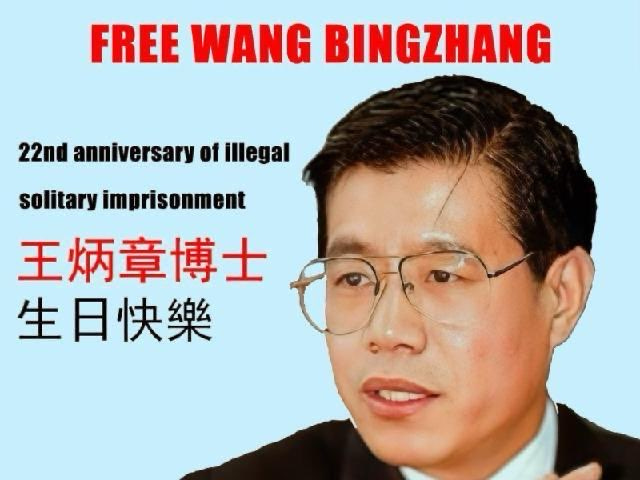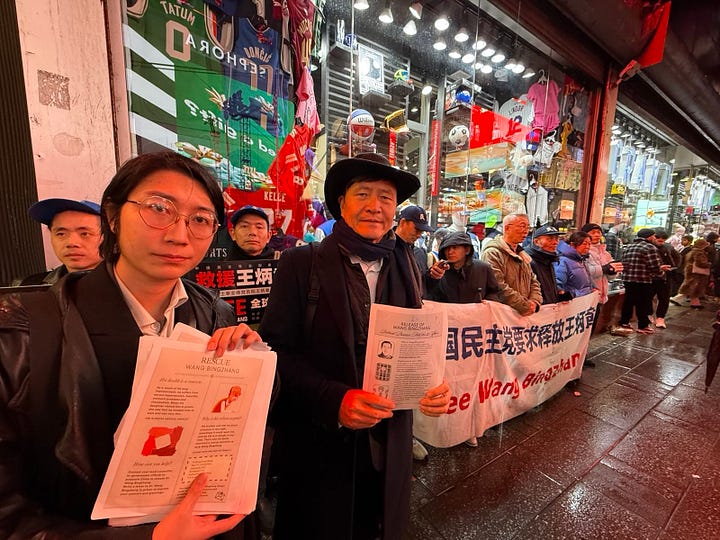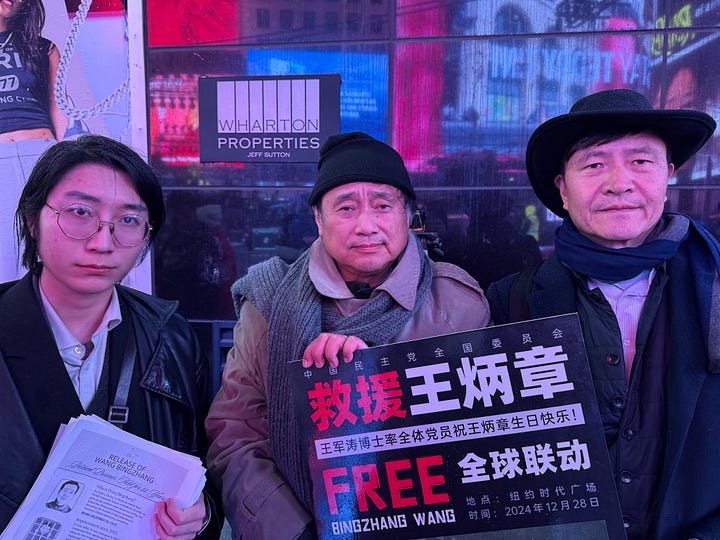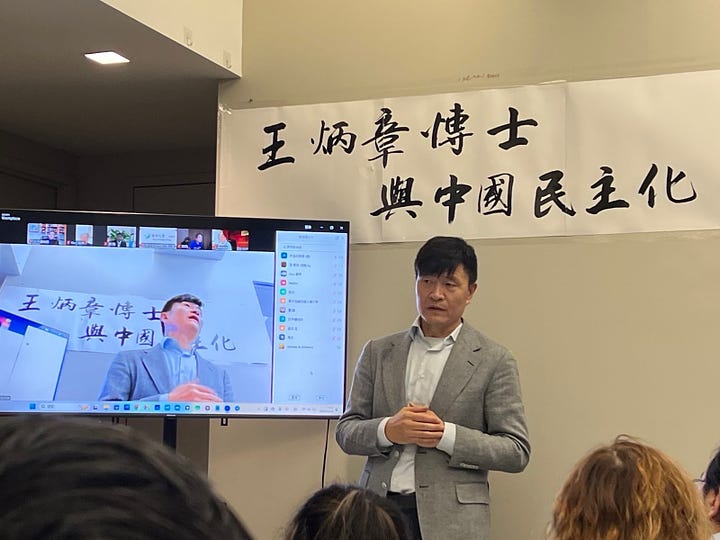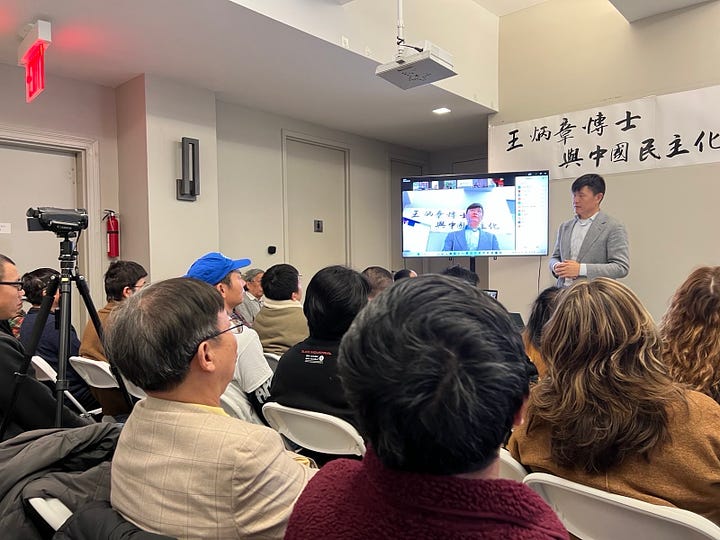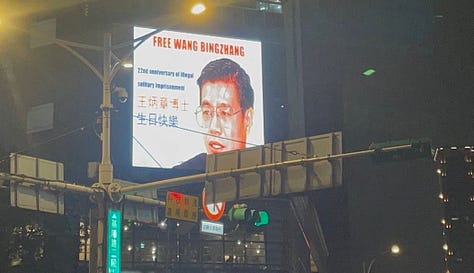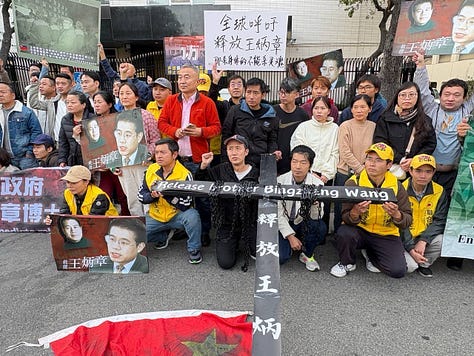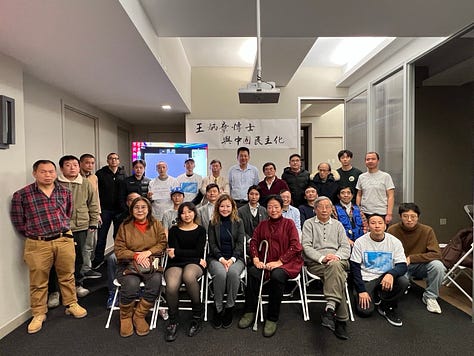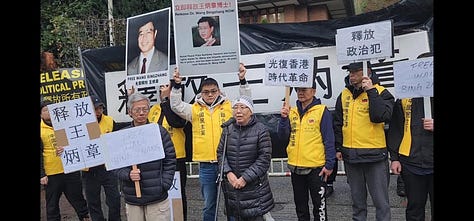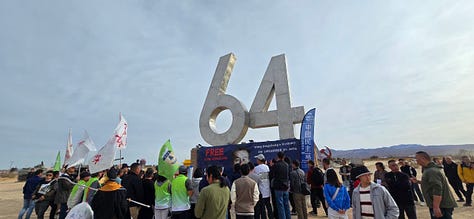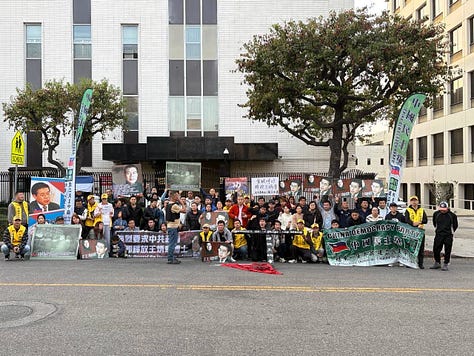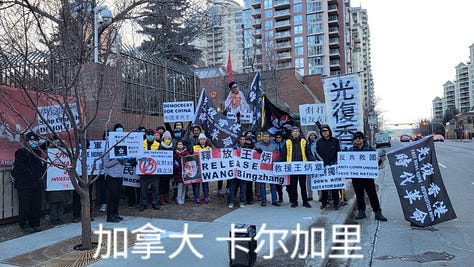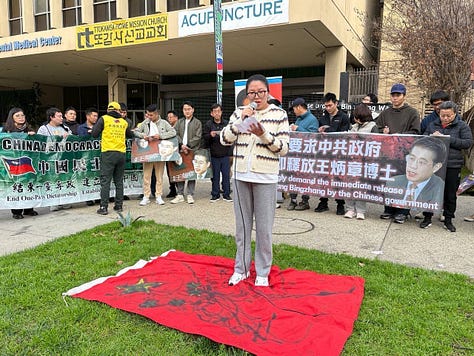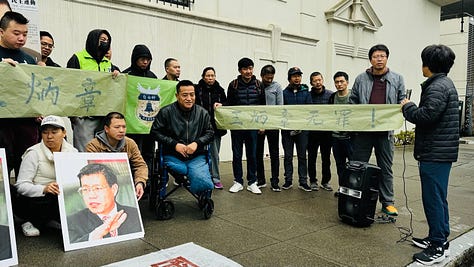Free Wang Bingzhang: New committee established to free a hero of Chinese democracy
2
Share
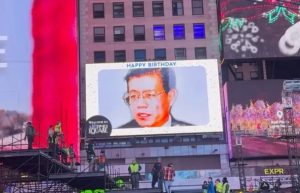
The "Free Wang Bingzhang" committee, co-founded by Wang’s family and Zhou Fengsuo, Executive Director of Human Rights in China, has been established to advocate for the release of one of China’s most courageous and unjustly silenced democracy advocates. Wang became a target for the Chinese Communist Party (CCP) in the 1980s due to his ceaseless efforts to challenge its monopoly on power and cultivate political pluralism – founding pro-democracy organizations, publishing critical works, and even attempting to establish a democratic political party inside China. Recently, he celebrated his 77th birthday in solitary confinement.
Last weekend, marking Wang’s 22nd year in detention, the committee initiated a global campaign to advocate for his release. The campaign aims to raise international awareness of Wang’s plight and amplify his significance as a symbol of democratic resistance. Events were held in nearly 20 cities, including New York, London, Berlin, and Taipei. In Times Square, New York, a giant neon screen displayed a birthday tribute to Wang, alongside activists holding signs calling for his release. At Taipei 101, one of Taiwan’s most iconic landmarks, a large billboard broadcast messages of solidarity. Wang’s 16-year-old granddaughter was among the participants, and she emphasized the importance of the next generation continuing her grandfather’s fight for democracy. Congressman John Moolenaar, Chair of the Select Committee on the Chinese Communist Party, sent a video of his public statement to the Free Wang Bingzhang Committee, calling for Dr. Wang Bingzhang’s immediate release. Shortly after, Senator Adam Schiff of California joined the call, writing: The Chinese government must release Dr. Wang [Bingzhang], Mr. Ding [Jiaxi], and all prisoners of conscience.”
Born in 1947 in Shenyang, Liaoning Province, Wang Bingzhang began his career as a cardiothoracic surgeon, graduating from Beijing Medical University before earning a PhD in Canada. His growing concern for China’s political future led him to abandon his promising medical career in 1982 and dedicate himself to the cause of democracy.
In New York, Wang founded China Spring, a groundbreaking pro-democracy magazine which became “the voice of a movement.” He co-founded the Chinese Alliance for Democracy (CAD) and other advocacy groups, amplifying the struggles and aspirations of overseas Chinese activists. The CCP moved swiftly to suppress his influence, revoking his citizenship in 1984 and labelling him a threat to state stability.
In 1998 Wang covertly returned to China at great personal risk to co-found the China Democracy Party. This formation of an opposition party within China’s borders marked a pivotal and yet little known moment in modern Chinese political history. It showed the potential of a unified domestic movement striving for democratic reform. Wang displayed not only remarkable bravery but a strategic understanding of the need to unite grassroots and intellectual resistance against the regime. Although the CCP swiftly suppressed the party, Wang’s actions showed the fragility lying behind the regime, which depends on fear and isolation to maintain power.
In 2002, Wang was abducted in Vietnam, illegally transported to China, and sentenced to life imprisonment after a secret trial on fabricated charges of espionage and terrorism. For the past 22 years, he has endured solitary confinement, a punishment widely recognized as a form of psychological torture. The CCP’s intention here is not merely to punish Wang but to ensure that his memory and contributions are buried; that he is erased from the historical record. Thanks to such efforts, Chinese society is largely deprived of historical precedents of opposition, and role models who can prove that change is possible.
In recognition of his remarkable sacrifice, Wang was awarded the prestigious Freedom Award by Freedom House earlier this year. Accepting the award on his behalf, Wang’s daughter Ti-Anna Wang stressed the urgent need for international solidarity to challenge the CCP’s repression and demand justice.
Wang’s case is a microcosm of the CCP’s contradictions. China seeks to shape global norms, from human rights to multilateral governance, yet its treatment of Wang exposes a glaring hypocrisy: How can a state vying for global leadership torture an ill and elderly man for advocating for the universal values of democracy and freedom? The international community must understand: Wang’s case is not peripheral: it is a glimpse into the true nature of the CCP.
A critical element of the campaign for Wang’s release involves advocating for his prioritization in any potential U.S.-China prisoner exchange. Wang is not only a peaceful advocate for democratic reform but also a 77-year-old man in failing health, who has endured two decades of unjust imprisonment. His release would provide a desperately needed resolution to a profound injustice. Importantly, Wang is a figurehead of the Chinese democracy movement—his courage and legacy continue to inspire those fighting for political reform in China. Securing his freedom would reinvigorate this movement and signal to the CCP that its efforts to erase him have failed. By prioritizing Wang in such negotiations, the international community would reaffirm its commitment to the values he represents: freedom, justice, and accountability.
The CCP’s strategy of erasing figures like Wang undermines collective efforts to challenge its rule, and deprives future generations of the historical examples and role models which can help drive resistance. Internationally, it emboldens other authoritarian regimes to suppress dissent with impunity. Over time, this serves to erode the principles that underpin global human rights protections. Failing to act risks normalizing these tactics and weakening the international community’s ability to hold regimes to account.
The establishment of the "Free Wang Bingzhang" committee is a crucial step in restoring his legacy and resisting the CCP’s efforts to silence dissent. Wang’s courage and sacrifices demand recognition, and his freedom must become a priority for the international community. By standing with Wang, we reaffirm our commitment to the values of democracy, justice, and human rights. Please spread the word.
#FreeWangBingzhang
Read more:
China Spring — "北京之春:纽约举办王炳章博士与中国民主化座谈会 [Beijing Spring: New York holds a symposium on Dr. Wang Bingzhang and China's democratization]"
New Tang Dynasty Television — "抗議中共鎮壓 各地民主人士呼籲釋放王炳章 [Protesters protesting the CCP’s suppression of democrats across the country call for the release of Wang Bingzhang]"
Radio Free Asia — "王玉华:王炳章若死在狱中 王家誓向中共讨回公道 [Wang Yuhua: If Wang Bingzhang dies in prison, the Wang family vows to seek justice from the CCP]"
Radio Taiwan International — "「全球行動 營救王炳章」及王炳章其人其事 ["The global movement to Free Wang Bingzhang": Wang Bingzhang's life and events]"
Voice of America — "民运团体发起“救援王炳章”全球联动活动:敦促中共释放被关押22年的民主斗士 [Democracy movement groups launch global campaign to “Free Wang Bingzhang”: urging the Chinese Communist Party to release the democracy fighter who has been detained for 22 years]"
